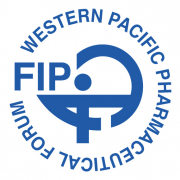WHO launches programme to improve antenatal care in Mozambique
30 Sep, 2014
reference:http://www.who.int/features/2014/mozambique-antenatal-care/en/

When Langa*, a nurse at Centro de Saúde de Anchilo clinic in Mozambique, told a group of pregnant women how important it is to come to the clinic for check-ups before they had their babies, she spoke from her own experience. She explained to the women how grateful she is to make those visits now that she was expecting her first baby. Each visit provided her with useful information and she was able to receive rapid HIV and syphilis tests to protect her baby from possible infection.
New approach to antenatal care in Mozambique
Mozambique first adopted WHO’s antenatal care model in 2008. But it proved easier to do this in principle than in practice. The country was short of medical supplies and some clinics would turn women away in their first trimester, unless they could visually confirm the pregnancy or pay for a test. This drove women away from clinics; making them miss out on basic testing before they delivered.
Moreover, it was hard to get to the clinics: a lack of time and transport kept many women from using clinic services. And even if they were able to get there to have a test, they were often unable to get back to get their results. As a health care professional at a clinic in the Province of Maputo explained; “Many times test results are not collected, it is not easy for the women to return to collect them because of the distance.”
Project brings more women into the health system
Now women, like Langa, only have to visit one clinic. Each clinic receives complete antenatal care packages with all of the necessary medicines and laboratory supplies. WHO medical officer, Dr. Ana Pilar Betrán, explains that with the streamlined approach: “Waiting times are shorter and women are more positive and prompt to come in for their antenatal care visits.”
By the end of 2015, 10 clinics across Mozambique will be providing full antenatal care services under the programme. Dr. Betrán says that, “…if the intervention is proved efficient, then the next steps will be to expand the process and the intervention to the whole country.”
Dr. Betrán visited the first antenatal care clinic in the Nampula Province in Mozambique on 1 June 2014, for the launch of the programme, and was overwhelmed: “It was really incredible the amount of women that were in the waiting room.” Dr. Betrán and her team designed the programme, trained health care providers, and established storage and tracking systems for the equipment and medicine. Now Langa won’t have to turn women away due to a lack of resources.
Antenatal care is an important factor in ensuring women deliver their babies safely, and that those babies are healthy. Women in the 10 pilot project areas are beginning to see why they need to visit health-care professionals during their pregnancy.
Women-centred health care
The new one-stop shop approach resulted from research carried out in 2011 through focus groups with women who experienced the clinics first-hand. Dr. Marleen Temmerman, Department Director of Reproductive Health and Research at WHO, explained the importance of this “person-centred” approach to health care and ensuring that everyone has access to the services they need, when they need them: “One of the cornerstones of achieving universal health coverage is to not only utilize evidence-based decision making, but to also speak with and understand the population affected.”
